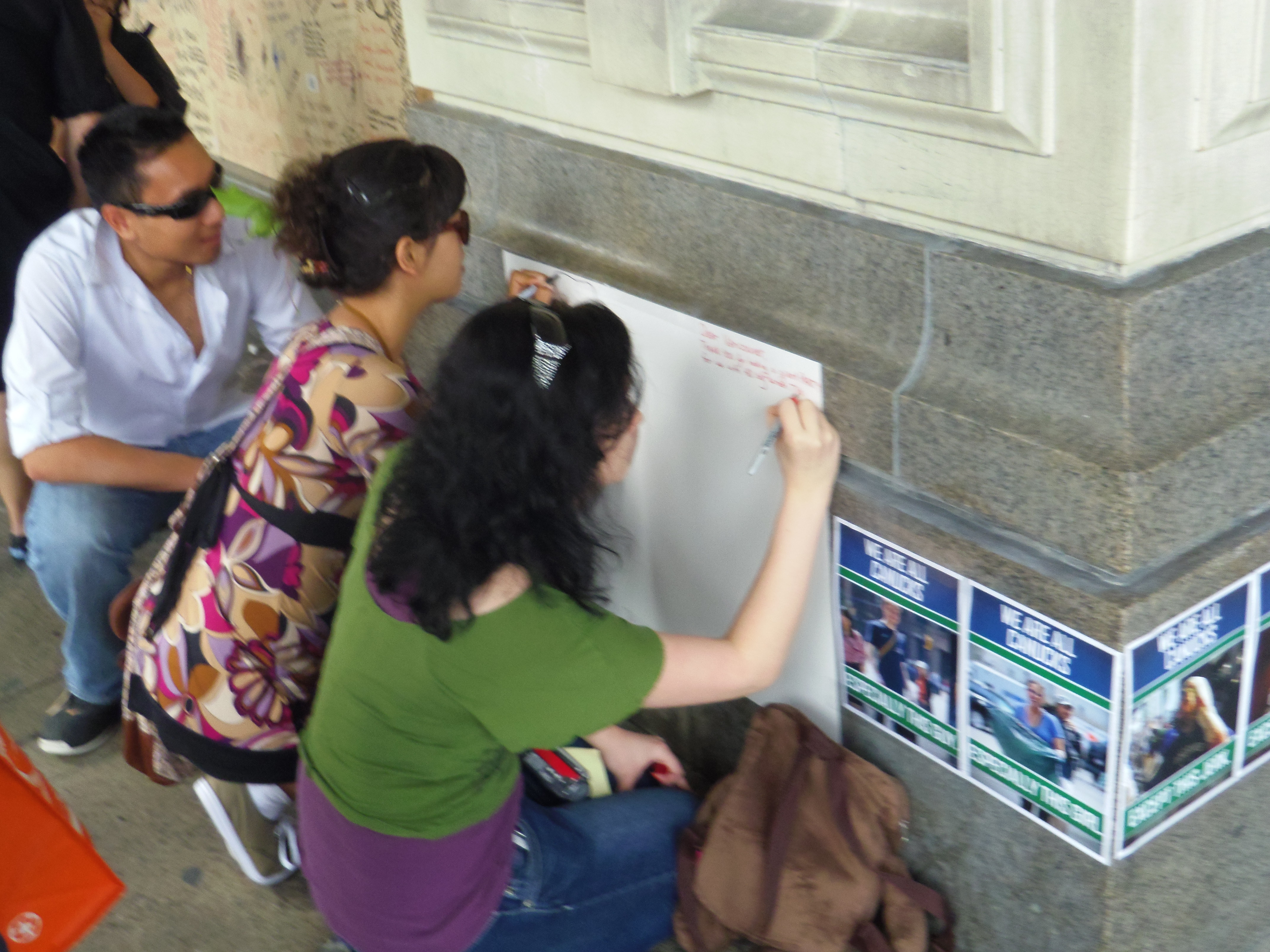One of the funny things about the Bible is how regionally-specific its allusions are. Jesus is described as a shepherd, a potter, a sower of specific types of seeds… all references that would be readily understood by those living in the Middle East. Of course a culture that has no sheep wouldn’t really understand the reference, likewise with cultures that don’t use pottery, and has anyone ever seen a mustard seed grow into a tree? I’ve only ever seen them on a sandwich.
One of my favourite Biblical allusions comes from the book of Matthew:
And again I say unto you, It is easier for a camel to go through the eye of a needle, than for a rich man to enter into the kingdom of God.
Any of you shocked by the fact that a confirmed and vocal atheist would quote the bible need not be: I quote Shakespeare, Nietzche and Orwell too. A good phrase is a good phrase, regardless of how bat-shit insane the author may be. This particular quote, replete with its regional dialect (why a camel? why a needle?) suggests that rich people, or more specifically people tied to material and worldly goods would find getting into heaven very difficult. ‘Abandon your material possessions and focus your attention on Yahweh’ is the bedrock of Jesus’ theological position.
They must make those needles pretty big in Nigeria:
Nigeria’s pastors run multi-million dollar businesses which rival that of oil tycoons, a Nigerian blogger who has researched the issue has told the BBC. Mfonobong Nsehe, who blogs for Forbes business magazine, says pastors own businesses from hotels to fast-food chains.
“Preaching is big business. It’s almost as profitable as the oil business,” he said. The joint wealth of five pastors was at least $200m (£121m), he said. Evangelical churches have grown in Nigeria in recent years, with tens of thousands of people flocking to their services.
The wearisome part of blogging about religion is the depths of hypocrisy that one finds among believers, especially those that lead the flock (of camels?), becomes almost cliché after a while. It becomes repetitive and rather thin gruel for people who have been paying attention to religious establishments. It is pretty much de rigeur for those who claim a superior level of morality, purity, and righteousness (as given them by strict adherence to YahwAlladdha’s commands and the power of the Holy Spirit) to be caught, sometimes literally, with their pants down in violation of some stricture or other. Another religious zealot violates the strictures of her/his own purported beliefs? Ho hum… where’s my Congressional cock shot?
The reason I think this stuff bears repeating is twofold: first, because there are people who honestly believe that these kinds of things are isolated indiscretions rather than exactly what happens when human beings give other human beings power that is not only unquestioned, but fundamentally unquestionable. Criticizing the god-man is a good way to get ostracized and run out of the community, and when you depend on that community for your survival, you’re even less likely to raise an eyebrow when your hard-earned dollars are going to buy his… what did these guys buy again?
Bishop Oyedepo owned a publishing company, university, an elite private school, four jets and homes in London and the United States, according to Mr Nsehe.
“Oyakhilome’s diversified interests include newspapers, magazines, a local television station, a record label, satellite TV, hotels and extensive real estate,” Mr Nsehe said.
Ah yes, the kinds of necessities that are needed to support and develop the communities from which the funds come. Authority derived from religious faith is basically a blank cheque for corruption and abuse. It requires the engagement of the rational part of your brain to recognize and critique hypocrisy – faith actively encourages the suspension of the rational mind. The next thing it actively encourages is for you to make a show of sacrificing your material possessions to gain an afterlife reward for which no evidence is offered (“you just have to believe!”). We have to begin to recognize that the only legitimate reason to believe in a leader is a proven track-record of effectiveness and honesty – piety shouldn’t enter into it.
The second reason I bring this up is that it is usually the people who can least afford to give away their money that are most susceptible to these hucksters. It’s the poorest and least-educated that have the greatest level of desperation, and who are therefore most likely to abandon what little they have for the promise of something greater in the future. Conversely, it is those who have the most to gain from fraud and deception that prey on that same desperation to make what is a huge amount of money in a place like Nigeria. And of course religious organization like the Vatican can’t say anything, lest they open themselves up to more accusations of gross hypocrisy about how much money they take in from gullible suckers pious believers.
It is a great shame that these funds are being used for the exclusive benefit of the pastors. Had the people in these communities instead invested in themselves, they could have built their own schools, newspapers, and real estate. Imagine for a moment if they had pooled that money to attract skilled tradespeople to teach community members how to build businesses and develop commerce. That’s how wealth gets built. Instead, they happily threw it into the pockets of the first hypocrite to cross their path.
Or maybe they just have tiny camels.
Like this article? Follow me on Twitter!











